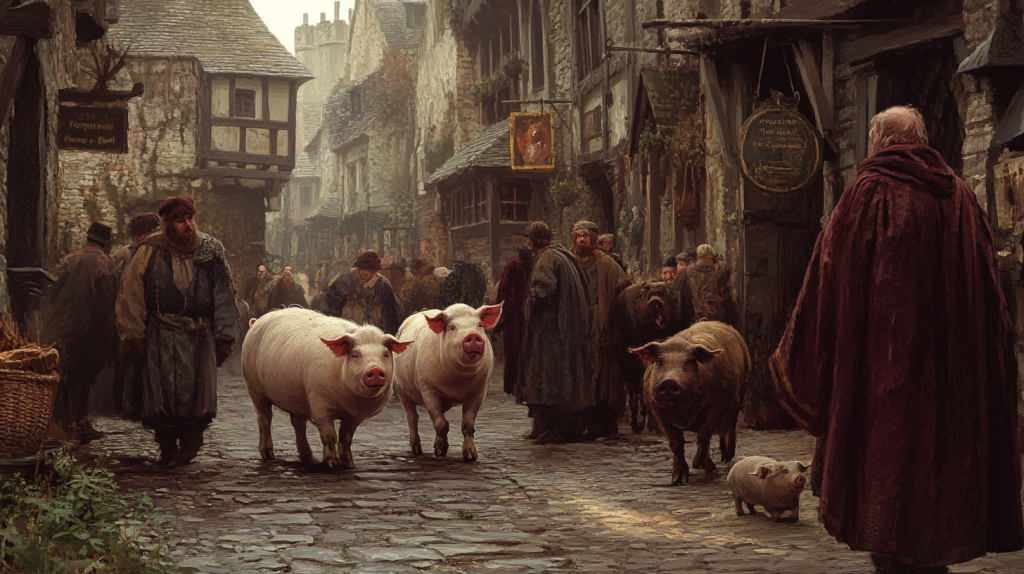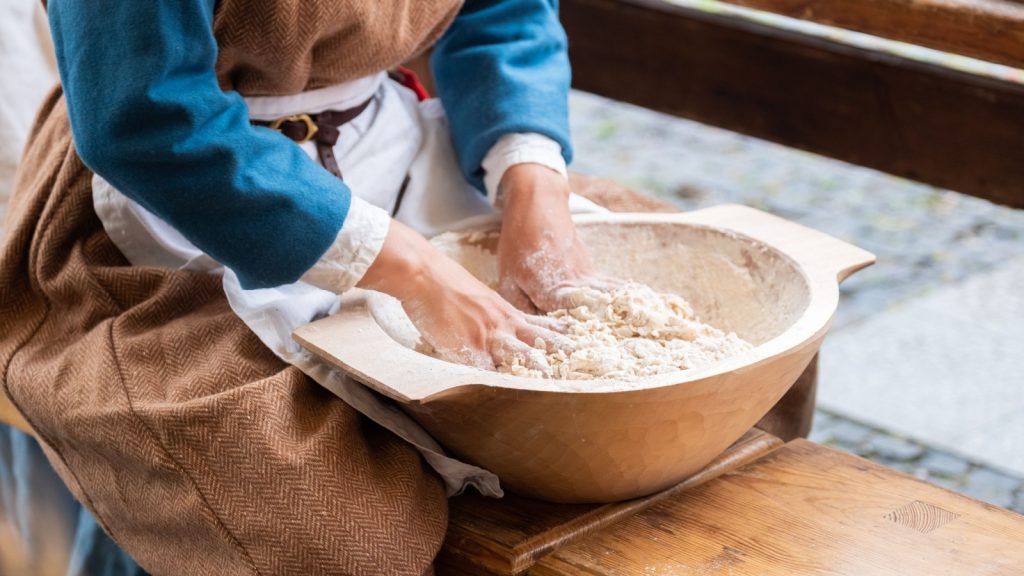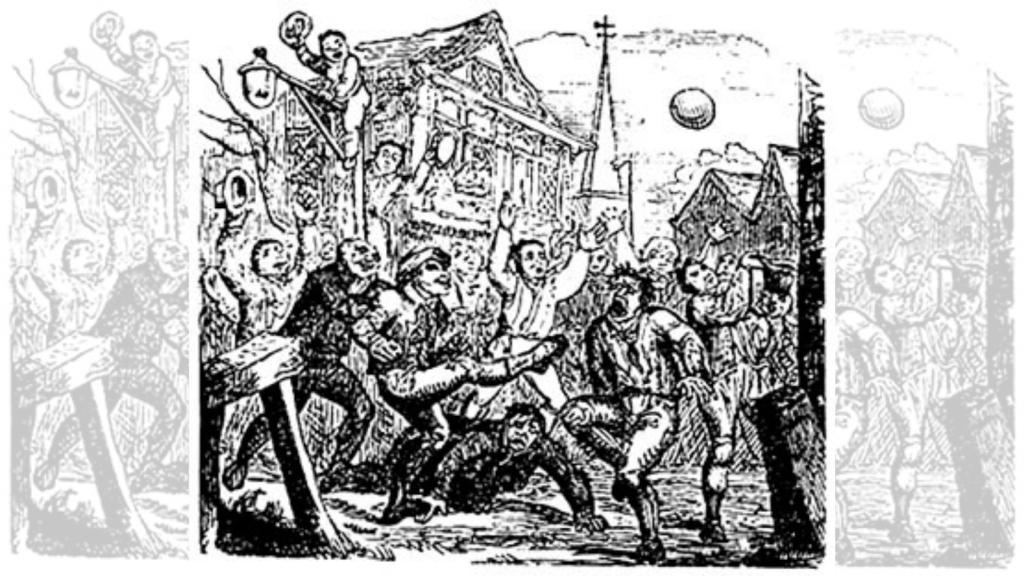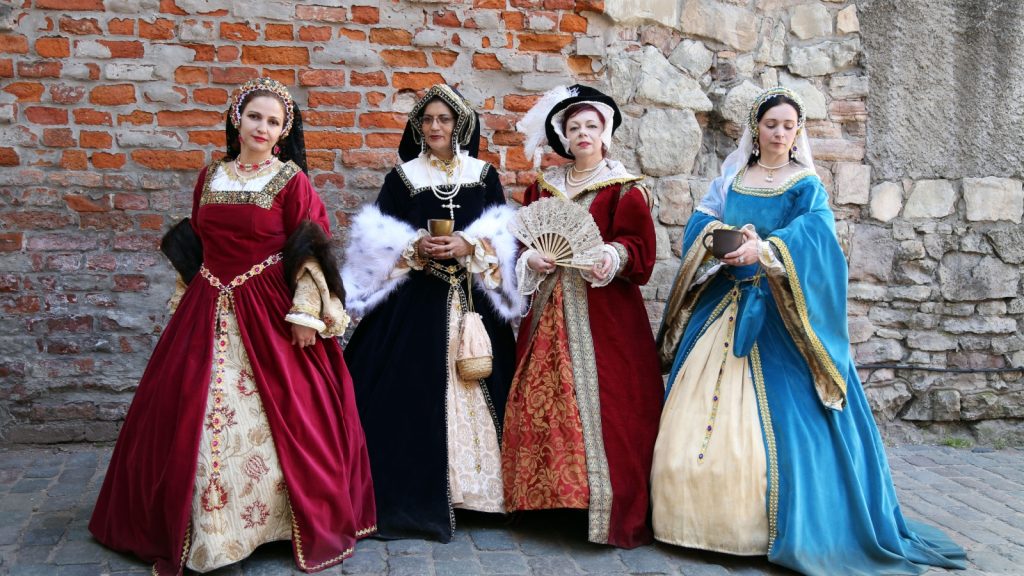Medieval England was full of laws that, by today’s standards, seem bizarre. Many of these laws reveal a lot about the everyday lives, superstitions, and priorities of people in those times. In an age of castles, knights, and strict religious influence, laws weren’t just about governing behaviour—they also dictated what people wore, how they ate, and even how they could interact with animals! Looking back, some of these laws feel downright absurd, but they once had serious consequences for those who broke them.
1. No Wearing Clothes Above Your Social Rank

In medieval England, laws dictated that people could only wear clothing suited to their social rank. Called “sumptuary laws,” these regulations prohibited commoners from wearing silk or fur, which were reserved for the wealthy. Breaking these laws was considered both a crime and an insult to the social order.
2. Pigs Were Not Allowed to Roam the Streets

In towns and cities, pigs were banned from roaming freely in the streets because they could cause trouble and spread disease. Authorities believed roaming pigs were both a health hazard and a nuisance, but enforcement often depended on a town’s cleanliness standards.
3. Bread Couldn’t Be Too Light

The Assize of Bread and Ale law ensured that bakers couldn’t make undersized or underweight loaves. If a loaf didn’t meet the standard weight, bakers could be heavily fined or even face public punishment, as bread was a staple food, and fairness in its trade was paramount.
4. No Eating Meat on Fridays

Religious observance required people to avoid eating meat on Fridays to honour the death of Christ. This rule applied strictly to everyone, with punishments like public penance for violators, as it was enforced by the Church, which held a significant influence over daily life.
5. Archery Practice Was Mandatory on Sundays

As wars were frequent, the English needed a strong military force. By law, men between the ages of 15 and 60 had to practice archery every Sunday after church. Failure to practice could lead to fines, as being a skilled archer was considered a patriotic duty.
6. Don’t Damage the Lord’s Trees

The Forest Laws protected the king’s lands, which meant even taking fallen wood or hunting without permission was a crime. Breaking these laws, even by foraging for firewood, could lead to severe punishment, as the forests were vital resources for the monarchy.
7. Bakers Weren’t Allowed to Cheat

To prevent bakers from selling underweight loaves, they were legally required to add an extra loaf—hence the term “baker’s dozen.” Selling an underweight dozen could lead to severe penalties, including fines or imprisonment.
8. Curfews for Everyone

Medieval towns often enforced curfews to prevent nighttime crime. A bell would ring to signal the curfew, requiring everyone to extinguish their fires and candles and head home. Violating curfew could result in fines or even imprisonment.
9. If Your Animal Caused Damage, You Paid

In medieval England, people were held responsible for their animals’ actions. If a cow trampled crops or a horse injured someone, the owner would be fined. This law made animal owners cautious about their livestock’s behavior.
10. No Football Allowed

Football was considered a disruptive and rowdy game, leading to frequent bans. The game was accused of distracting men from important pursuits like archery practice, and violators could be fined or jailed.
11. Drinking Ale Could Only Happen in Taverns

Alehouses were the only legal establishments for drinking, which kept intoxicated crowds in one place and under watch. Drinking outside of an alehouse could lead to a fine, as authorities wanted to limit public disturbances and encourage oversight.
12. Women Couldn’t Marry Without Permission

Marriage for women was often seen as a transfer of property. Women needed the approval of their family or the lord of the land to marry. Unauthorized marriages were void, and women could be severely punished for defying their families’ wishes.
13. No Work on Sundays—Strictly Enforced

Sunday was a holy day, and no work of any kind was allowed. The Church enforced this strictly, with fines or public penance for violators. This law was deeply religious and emphasized a weekly day of rest and reflection.
14. Begging Was Strictly Regulated

Not everyone could simply beg for alms; you needed a license to beg. This law aimed to reduce the number of beggars, especially in major towns, and those without a license could be arrested or removed from the area.
15. No Being Noisy After Sunset

Disturbing the peace after sunset was taken very seriously, especially in villages where noise was a rarity at night. Anyone found to be too loud after curfew could face a fine or even a night in jail, as quiet was thought to help keep the peace.
17 Old Wives’ Tales That Are Actually True

Old wives’ tales have been passed down through generations, often dismissed as mere superstition. However, many of these age-old beliefs are rooted in truth. From health tips to weather predictions, these stories from the past can surprise us with their accuracy. Here are 17 old wives’ tales that are actually true.
Read More: 17 Old Wives’ Tales That Are Actually True
Ellen has been obsessed with logic puzzles, jigsaws, and cryptograms since she was a kid. After learning she was taught how to play chess wrong by a family friend (so they could win), she joined her school chess club and the rest is history.


